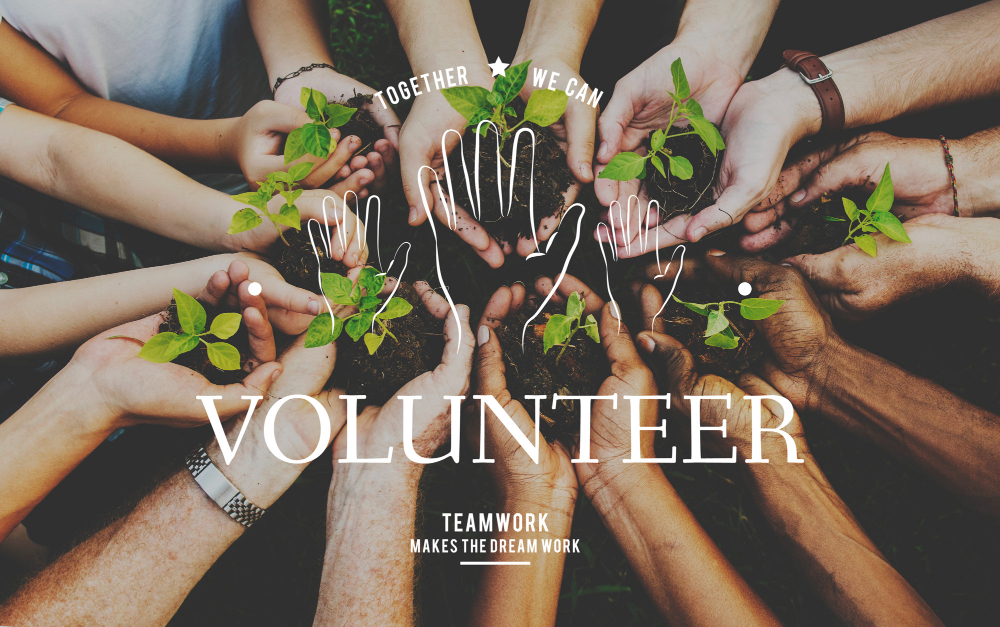Introduction
Our planet is facing unprecedented environmental challenges, from climate change and biodiversity loss to pollution and deforestation. These challenges threaten not only the natural beauty and diversity of our world, but also the health and well-being of millions of people who depend on the environment for their livelihoods and survival.
Fortunately, there are many organizations that are dedicated to preserving our planet and its resources. These organizations are known as non-governmental organizations (NGOs), and they play a vital role in environmental conservation. NGOs are independent, non-profit, and voluntary groups that work for a common cause or interest, often at the local, national, or international level. NGOs have a variety of approaches and strategies to address environmental issues, such as advocacy, education, research, innovation, and collaboration.
In this blog post, we will explore the power of NGOs in environmental preservation, the strategies they employ, the challenges they face, and the impact they have. We will also look at the future of NGOs in preserving our planet, and how we can support and engage with them.
The Power of NGOs in Environmental Preservation
Some of the most prominent and influential environmental NGOs are:

NGOs are powerful agents of change in environmental preservation, as they have the ability to mobilize resources, influence policies, raise awareness, and implement solutions. NGOs are diverse in their scope, size, and focus, but they share a common vision of a sustainable and equitable world.NGOs work tirelessly to address pressing environmental issues such as climate change, deforestation, pollution, and loss of biodiversity. Through partnerships with governments, businesses, and local communities, NGOs are able to drive positive change and create a more sustainable future for generations to come. Their passion, dedication, and innovation make them essential players in the global effort to protect our planet.
- WWF (World Wide Fund for Nature): WWF is the world’s largest conservation organization, with over 5 million supporters and a network of more than 100 countries. WWF’s mission is to stop the degradation of the planet’s natural environment and to build a future in which humans live in harmony with nature. WWF works on issues such as wildlife conservation, forest protection, climate change, freshwater management, and ocean health.
- Greenpeace: Greenpeace is a global environmental movement that uses peaceful protest and creative communication to expose environmental problems and promote solutions. Greenpeace’s campaigns focus on areas such as climate change, biodiversity, forests, oceans, agriculture, and nuclear energy.
- The Nature Conservancy: The Nature Conservancy is a global conservation organization that works to protect the lands and waters that sustain life. The Nature Conservancy has over 1 million members and works in more than 70 countries. The Nature Conservancy’s projects include restoring habitats, protecting endangered species, promoting sustainable agriculture, and supporting community-led conservation.
These are just some examples of the many environmental NGOs that are working to preserve our planet. There are also countless case studies that showcase the successful initiatives led by NGOs, such as:
- Conservation of endangered species: NGOs have played a crucial role in saving many species from extinction, such as the giant panda, the mountain gorilla, the black rhino, and the blue whale. NGOs have helped to establish protected areas, reduce poaching and illegal trade, reintroduce captive-bred animals, and monitor populations.
- Protection of natural habitats: NGOs have helped to conserve some of the most important and threatened ecosystems on the planet, such as the Amazon rainforest, the Coral Triangle, the Great Barrier Reef, and the Arctic. NGOs have worked to prevent deforestation, degradation, and fragmentation, and to restore and enhance ecosystem services and functions.
- Advocacy for sustainable practices: NGOs have advocated for policies and practices that reduce the environmental impact of human activities, such as energy production, transportation, industry, and agriculture. NGOs have campaigned for renewable energy, green transportation, circular economy, and organic farming. NGOs have also promoted the adoption of environmental standards, regulations, and certifications.
Strategies Employed by NGOs
NGOs employ a range of strategies to achieve their environmental goals, such as:

- Advocacy and lobbying efforts: NGOs use their voice and influence to persuade decision-makers and stakeholders to adopt policies and actions that support environmental conservation. NGOs lobby governments, corporations, and international institutions to enact laws, regulations, and agreements that protect the environment and human rights. NGOs also use litigation, petitions, and demonstrations to challenge and hold accountable those who violate environmental laws and norms.
- Public awareness campaigns: NGOs use various media and communication channels to educate and inform the public about environmental issues and solutions. NGOs produce reports, documentaries, newsletters, websites, social media, and podcasts to raise awareness and generate public support and participation. NGOs also organize events, workshops, seminars, and exhibitions to engage and inspire people to take action for the environment.
- Collaborations with governments, businesses, and local communities: NGOs recognize that environmental preservation requires the involvement and cooperation of multiple actors and sectors. NGOs partner with governments, businesses, and local communities to design and implement solutions that are effective, inclusive, and sustainable. NGOs provide technical assistance, financial support, and capacity building to their partners, and also facilitate dialogue, negotiation, and conflict resolution.
- Research and data-driven solutions: NGOs conduct and support scientific research and data collection to understand and address environmental problems and opportunities. NGOs use evidence-based methods and tools to assess the state of the environment, identify the root causes and drivers of environmental degradation, and evaluate the impacts and outcomes of environmental interventions. NGOs also use data and technology to monitor and report on environmental performance and progress.
Challenges Faced by NGOs
Despite their achievements and contributions, NGOs also face many challenges and limitations in their work, such as:
- Funding limitations: NGOs rely on donations, grants, and memberships to fund their operations and activities. However, funding sources are often scarce, unstable, and competitive, and may come with strings attached or conditions imposed. NGOs may struggle to secure adequate and consistent funding, and may have to compromise their independence, accountability, and transparency.
- Political resistance: NGOs may encounter opposition and hostility from governments, corporations, and other powerful interests that perceive NGOs as a threat to their authority, profits, or agendas. NGOs may face legal restrictions, bureaucratic hurdles, censorship, harassment, intimidation, or even violence. NGOs may also have to deal with corruption, inefficiency, and lack of cooperation from some of their partners and allies.
- Balancing conservation goals with economic development: NGOs may have to balance their environmental objectives with the social and economic needs and aspirations of the people they serve and work with. NGOs may have to consider the trade-offs and impacts of their actions on the livelihoods, well-being, and rights of the local communities, especially the poor and marginalized. NGOs may also have to address the conflicts and tensions that may arise between different stakeholders and interests over the use and management of natural resources.
- Overcoming skepticism and misinformation: NGOs may have to overcome the skepticism and misinformation that may exist among some segments of the public and the media about environmental issues and solutions. NGOs may have to counter the myths, misconceptions, and falsehoods that may be spread by climate change deniers, anti-environmentalists, or industry lobbyists. NGOs may also have to deal with the apathy, indifference, or cynicism that may prevent some people from caring about or acting for the environment.
Success Stories and Impact
Despite the challenges and difficulties, NGOs have also achieved many success stories and impacts in environmental preservation, such as:
- Notable achievements in environmental preservation: NGOs have been instrumental in achieving some of the most significant and historic milestones in environmental preservation, such as the Montreal Protocol on ozone depletion, the Convention on Biological Diversity, the Kyoto Protocol on climate change, and the Paris Agreement on climate change. NGOs have also helped to establish and expand some of the world’s largest and most iconic protected areas, such as the Serengeti National Park, the Galapagos Islands, the Yellowstone National Park, and the Antarctic Treaty System.
- Quantifiable impacts on biodiversity, ecosystems, and climate resilience: NGOs have helped to conserve and restore millions of hectares of land and water, and to protect and recover thousands of species of plants and animals. NGOs have also helped to reduce greenhouse gas emissions, increase renewable energy use, and enhance climate adaptation and mitigation. NGOs have also contributed to improving the quality and availability of water, air, and soil, and to reducing waste and pollution.
- Testimonials from beneficiaries and stakeholders: NGOs have received positive feedback and recognition from the people and organizations they serve and work with, such as the local communities, the governments, the businesses, and the donors. NGOs have also received awards and honors from various institutions and entities, such as the Nobel Peace Prize, the Goldman Environmental Prize, the UN Environment Programme, and the World Economic Forum.
The Future of NGOs in Preserving Our Planet
The future of NGOs in preserving our planet is bright and promising, as they have many opportunities for innovation and collaboration, such as:
- Opportunities for innovation and collaboration: NGOs have the potential to leverage new and emerging technologies, such as artificial intelligence, blockchain, biotechnology, and nanotechnology, to enhance their efficiency and impact. NGOs can also explore new and creative ways of engaging and empowering the public, such as gamification, crowdsourcing, and social media. NGOs can also seek new and strategic partnerships with other actors and sectors, such as academia, media, and civil society, to amplify their reach and influence.
- Harnessing technology for greater efficiency and impact: NGOs can use technology to improve their operations and activities, such as data collection, analysis, and visualization, communication and coordination, monitoring and evaluation, and fundraising and reporting. NGOs can also use technology to improve their solutions and outcomes, such as remote sensing, drones, satellites, and sensors, to monitor and protect the environment, smart grids, microgrids, and energy storage, to promote renewable energy, and precision agriculture, vertical farming, and aquaponics, to support sustainable agriculture.
- Addressing emerging environmental challenges: NGOs can anticipate and respond to the new and evolving environmental challenges that may arise in the future, such as the impacts of COVID-19 and other pandemics, the effects of urbanization and globalization, the risks of cyberattacks and bioterrorism, and the opportunities of geoengineering and synthetic biology. NGOs can also adapt and innovate their approaches and strategies to address these challenges, such as using scenario planning, foresight, and resilience thinking, and applying systems thinking, complexity theory, and adaptive management.
- Engaging the next generation of environmental stewards: NGOs can inspire and involve the next generation of environmental stewards, who will inherit the planet and its challenges, and who will shape the future and its solutions. NGOs can educate and mentor the young people, and provide them with opportunities and platforms to express their views, ideas, and actions. NGOs can also support and collaborate with the youth-led and youth-focused environmental movements and organizations, such as Fridays for Future, Youth for Climate, and 350.org.
Conclusion
In conclusion, NGOs are guardians of green, who lead the charge in preserving our planet and its resources. NGOs have a vital role in environmental conservation, as they have the power, the strategies, the impact, and the vision to make a difference. NGOs face many challenges and limitations, but they also have many opportunities and potentials. NGOs need our support and engagement, as we all share the responsibility and the opportunity to preserve our planet and its future. Together, we can create a sustainable and equitable world, where humans and nature coexist in harmony.
